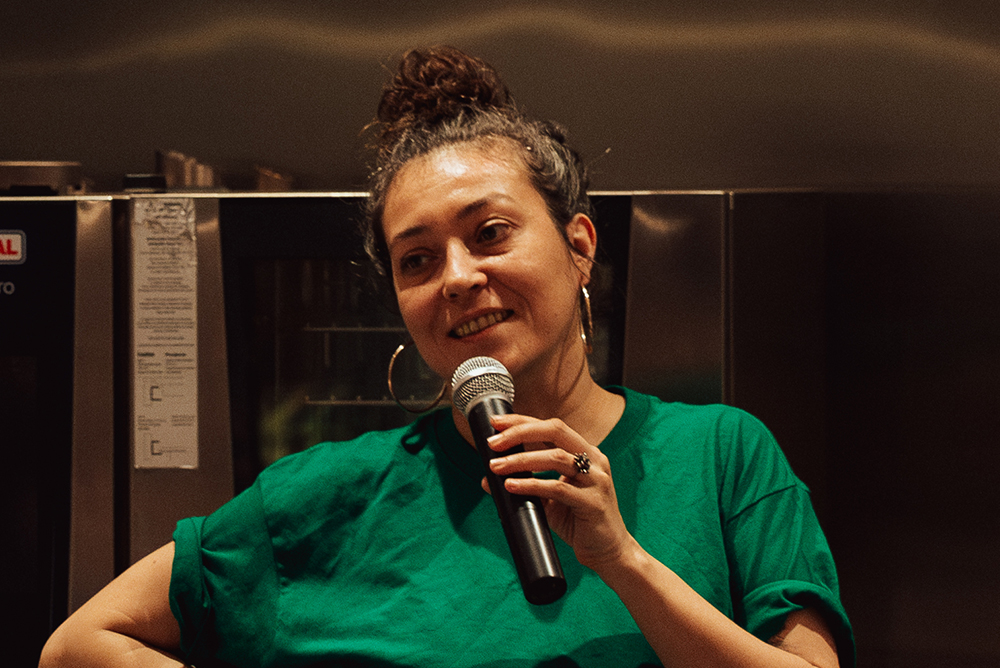
Photo by Chad Brady.
Zahara Gómez Lucini is a photographer focused on the victims of forced disappearance, forensic work, and clandestine graves in Latin America. She worked together with Las Rastreadoras del Fuerte in Sinaloa to create the Recetario para la memoria cookbook documenting the favorite dishes of some of the disappeared. Before joining the special experiential Zócalo program “Do We Need More Food Fights?”—presented in partnership with LA Cocina de Gloria Molina and California Humanities—she sat down in the green room to talk Chilango expressions, croissants, and dark humor.
How did you get involved in the Recetario para la memoria project?
It was born in 2020. I was a documentary photographer, and worked with women collectives looking for desaparecidos—the disappeared ones. Mexico has now more than 100 women collectives looking, and sadly more than 160,000 disappeared. I met one of these collectives, Las Rastreadoras del Fuerte, in Sinaloa, and I started to work with them to find new ways to make people aware of this reality. In 2019, I [asked them]: What do you think if we make a cookbook, and you cook the preferred meals of your disappeared? We started to work together. The first cookbook was in Sinaloa, and the second in Guanajuato.
What is one of the first things you remember photographing?
Strikes and social movements as a student at university in Paris, France.
Who is somebody that inspires you?
All these women [in the project] are amazing leaders. Otherwise, maybe people like Naomi Klein.
I read that you are “Spanish Argentinian, raised in France, and established in Mexico City.” Let’s play food association. What comes to mind when you think of:
Spain — Pan con tomate
Argentina — Milanesa
France — Le croissant
Mexico — Corn—in soup, in tortilla, in all the ways.
What is one of your favorite Chilango words or expressions?
Siempre si / siempre no. [Literally, “always yes / no.”]
If I ask you to do something on Sunday, and you say OK, and then Sunday comes around and I ask you if you can, you can say “siempre no.” In the end, it’s actually no; it implies a change of mind.
What was the last great meal you had?
This week, at my boyfriend’s house. He cooked. He’s from Bolivia, so he cooked habas [fava beans] with mint, tomatoes, chili, and onions.
If the “non-human beings” came to reclaim their buried in Mexico and you had to host them, what would you serve them?
If I want to befriend them, then aguachile. And maybe a very good spicy sauce.
When was the last time you laughed really hard?
I have a very dark [sense of] humor. A few hours ago, I laughed with my colleague Clarissa about the difference in the heart and connection between women and men. It was funny, but dark funny.



